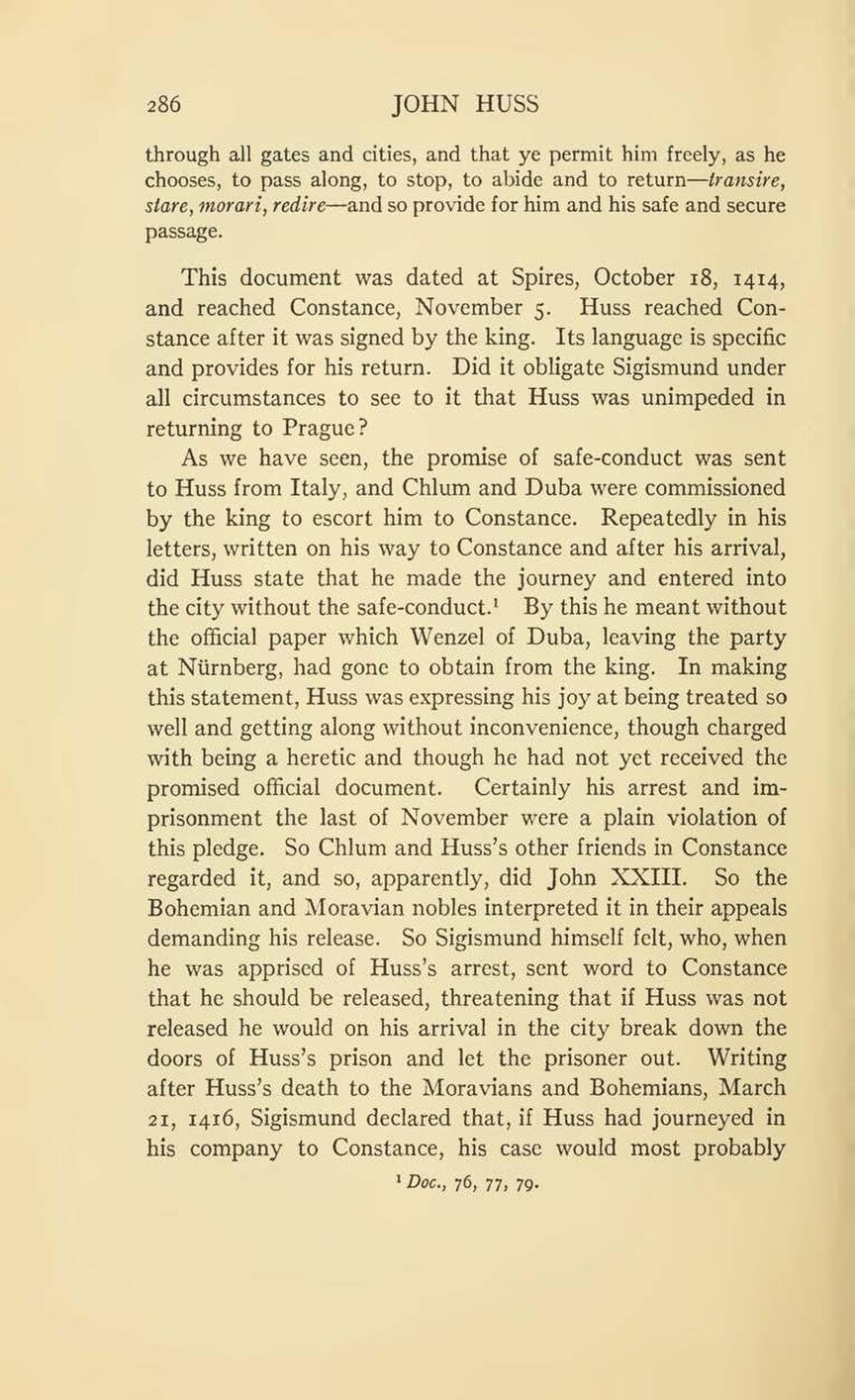This document was dated at Spires, October 18, 1414, and reached Constance, November 5. Huss reached Constance after it was signed by the king. Its language is specific and provides for his return. Did it obligate Sigismund under all circumstances to see to it that Huss was unimpeded in returning to Prague?
As we have seen, the promise of safe-conduct was sent to Huss from Italy, and Chlum and Duba were commissioned by the king to escort him to Constance. Repeatedly in his letters, written on his way to Constance and after his arrival, did Huss state that he made the journey and entered into the city without the safe-conduct.[1] By this he meant without the official paper which Wenzel of Duba, leaving the party at Nürnberg, had gone to obtain from the king. In making this statement, Huss was expressing his joy at being treated so well and getting along without inconvenience, though charged with being a heretic and though he had not yet received the promised official document. Certainly his arrest and imprisonment the last of November were a plain violation of this pledge. So Chlum and Huss’s other friends in Constance regarded it, and so, apparently, did John XXIII. So the Bohemian and Moravian nobles interpreted it in their appeals demanding his release. So Sigismund himself felt, who, when he was apprised of Huss’s arrest, sent word to Constance that he should be released, threatening that if Huss was not released he would on his arrival in the city break down the doors of Huss’s prison and let the prisoner out. Writing after Huss’s death to the Moravians and Bohemians, March 21, 1416. Sigismund declared that, if Huss had journeyed in his company to Constance, his case would most probably
- ↑ Doc., 76, 77, 79.
